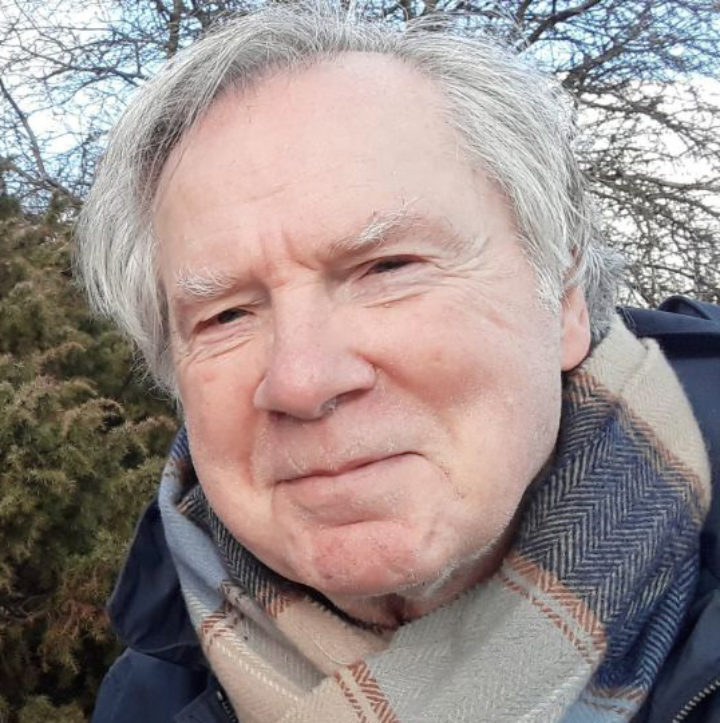Professor Gunnar Broberg (1942-2022): An Unsurpassed and Astute Historian of Linnaeus
Curious and friendly, Gunnar Broberg set human beings as the frontispiece of historical research. In his death, he will be remembered for his humour, empathy and intellect.
Published on 18th May 2022

To our deep sadness, Professor Gunnar Broberg, a masterly scholar of Carl Linnaeus, passed away on Saturday 30 April at the age of 79. The funeral was held in Klosterkyrkan in Lund on May 13. This is a loss that will be felt by several science historians especially those who study the life and work of Linnaeus.
The door to Professor Gunnar Broberg’s study was always open. “Gunnar gladly received people for conversations and listened with interest, encouragingly he showed the possibilities and generously shared his learning and reading. His personality was distinguished by his concern for his fellow human beings, his kindness and openness,” said David Dunér FLS, Professor of History of Science and Ideas at Lund University, Sweden.
Isabelle Charmantier, Head of Collections, Linnean Society of London, remembers how Broberg’s work on Linnaeus significantly enhanced scholarship on the man and his work. “His work was invaluable to me when I was first researching, and then cataloguing the Linnaean manuscripts, and it has always been a great disappointment that I have not (yet) learned Swedish, especially in order to read his work which has not been translated into English," said Charmantier.
"Before his death, he wrote on a book about learned encounters, about people he met and engaged with. This is what many will remember about him: his human curiosity and friendliness in the encounter with another fellow human being."
"A historian of exquisite erudition"
Broberg grew up in a vicarage on the countryside of Södermanland, Sweden, and after his school years in Nyköping, he came to Uppsala where he defended his dissertation on Carl Linnaeus’s anthropology in 1976. He took up the professorship in the history of science and ideas in Lund in 1990 and successfully built a far-sighted and creative research environment.
As a researcher, Broberg had great breadth and depth. Nothing seemed uninteresting to him. He delved into the most varied subjects with curiosity and openness. His research interests included, in particular, the history of biology, zoology, and medicine, but he is mostly renowned for his research on Linnaeus. Undoubtedly, he was the world’s foremost expert on Linnaeus.
“Gunnar's work on Linnaeus shows him as a historian of exquisite erudition — no potential source, whether printed or archived, seemed to escape him. This is particularly true of the biography of Linnaeus that came out recently. But it is also true of his first book on Linnaeus anthropology, which laid bare the roots of Linnaeus's thinking in baroque natural philosophy and medicine, against a dominating trend to view Linnaeus as an enlightenment figure. That book was also the first which addressed a more problematic side of Linnaeus's work, his racial anthropology,” said Staffan Müller-Wille, University Lecturer in History of Life, Human and Earth Sciences, University of Cambridge.

"Gunnar overthrew many common prejudices about Linnaeus"
Professor Broberg visited the Linnean Society of London Library a few times over the years. “His visits were rewarding and thought-provoking, and Gunnar was the type of scholar every librarian dreams of working with: modest about his scholarship and his own achievements, but full of enthusiasm and willing to share,” said Charmantier. The Linnean Society of London was fortunate to engage with Broberg as part of the Society’s book of treasures which we released in 2020 (L: 50 Objects, Stories and Discoveries…), in which he wrote about his favourite ‘treasures’, Olof Rudbeck’s woodblocks and the Linnaean pearls.
Apart from his scholarly knack, he was also a fantastic writer. “His Linnaeus biography is a wonderful read, and very effective in overthrowing many common prejudices about the ‘flower king’. Another late work of his, A history of the night (Nattens Historia, 1996), is as poetic as it is learned,” said Müller-Wille.
Broberg’s biography of Linnaeus, published in Swedish in 2019, was awarded many prizes. He was editor-in-chief of the Annual Report of the Swedish Linnaeus Society for over 40 years. When he passed away, he had recently concluded his commentary to Linnaeus’s Nemesis Divina. In numerous books, articles, and chapters, he deepened the knowledge about Linnaeus as scientist, thinker, and private person, and placed him in his proper historical context.

For him, history was life-affirming
But it was his interest in the human being that distinguished him as a person and a researcher. Müller-Wille echoes this sentiment. “Gunnar's urge and ability to bring out the human side of science also uncovered the darker side of the history of science. In the 1990s he published a path-breaking edited collection on Eugenics and the Welfare State (1996), which demonstrated the continuity of sterilisation practices in Scandinavian countries. He also published important work on racial anthropology in twentieth-century Sweden, particularly with a view on the plight of the Sámi people.”
History for him concerned people and life. With subtle humour and empathy, he highlighted the telling examples that made human beings in history come alive. Their thoughts emerged from the silence of time. Before his death, he wrote on a book about learned encounters, about people he met and engaged with. This is what many will remember about him: his human curiosity and friendliness in the encounter with another fellow human being.
— Professor David Dunér FLS
Further Reading
